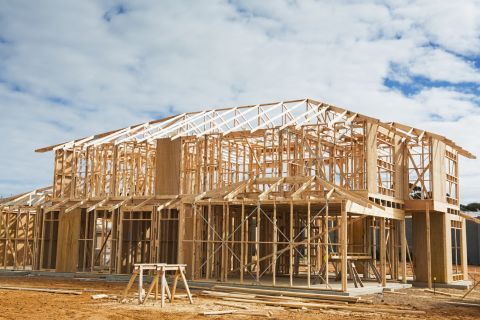Older workers prepare for retirement by doing more
Workers are retiring later but has that stalled as the labour market finds younger replacements?

What NSA recommends
National Seniors believes Australian economic and social policies need updating to make them appropriate for retirees. This may help combat ageist perceptions of older people as incapable and unproductive.
Increasing the Age Pension and the maximum rate of Commonwealth Rent Assistance would ensure no retiree is forced to work because of poverty.
The Age Pension income test is a barrier to pensioners working. Excluding employment income from the income test and adjusting taxation would allow pensioners to work without penalty and reduce reporting burden.
Employers need support to create suitable jobs, including the flexibility to make any modifications required to enable older peoples’ contributions to be sustainable.
There’s a need to provide retirees with digital technologies retraining opportunities for the workplace.
Australians are not retiring like they used to. The days of signing off from full-time work at 65, never to return, are fading, according to the latest research.
Semi-retirement of two to three years is becoming the norm for those who have the money, the health, and the confidence that provides flexibility and working-life options.
Since the pandemic, the retirement age has continued to go up and a KPMG study has found that, for both men and women, it is now the oldest since the early 1970s.
Commentators predict this suggests a fundamental shift in labour market dynamics post-COVID.
In both 2022 and 2023:
The expected retirement age for men was 66.2 years, the highest since 1972.
The expected retirement age for women was 64.8 years, the highest since 1971.
The retirement age over the last two decades has been steadily increasing from 63.3 to 66.2 years for men and from 61.6 to 64.8 years for women.
The report found this has been driven largely by improved job flexibility in “knowledge intensive” roles and tighter labour market conditions, meaning highly educated Australians are staying in the workforce longer.
Working from home has also been a game changer. Many older Australians in professional jobs now realise they can semi-retire and continue in the workforce from their home or even a holiday house.
Retirees returning to the workforce filled vital gaps in the labour market during and after the pandemic, with over-55s making up almost 70% of the increase.
Since the pandemic, women have been increasingly drawn into full-time employment, with the expected age of retirement from full-time work increasing by more than a year.
Meanwhile, the increased expected retirement age for men during the same period was driven by increases in part-time employment.
However, the report speculates those days are over. Last year, over-55s fell to just 21.3% of the workforce, as international migration rebooted and under-55s re-entered the workforce.
“Even in a tight labour market, we may have reached a plateau in the expected age of retirement, suggesting we cannot expect older workers to continue working longer,” KPMG Urban Economist, Terry Rawnsley says.
“This is because we simply can't find enough older workers to sustain the growth that occurred during the COVID-19 era.”
Among the major capital cities, Greater Perth has the highest expected retirement age for women and the second highest for men, inversely Greater Melbourne has the highest age for men and the second highest for women. The higher retirement ages reflect the tight labour markets in both those cities.
Greater Sydney and Greater Brisbane have lower expected age of retirements which may be linked to people shifting out of the city into nearby coastal areas (e.g. Central Coast, Sunshine Coast, Gold Coast,) when they leave the labour force.
Working beyond retirement age is a matter for the individual but experts describe the financial, social, and mental health benefits of working, even part-time.
Sudden retirement can be a shock to people who have worked full-time for 40 years and who may not be prepared for the changes that retirement brings.
That’s why National Seniors Australia is urging government to make it easier for older people to continue working and return to the workforce.
Instead of penalising Age Pensioners for working additional hours, we want government to
Introduce a universal pension
Reward care sector workers by exempting work income from the Age Pension income test to boost staff retention.
Under a universal pension, retirees would earn as much as they like from their investments or from work but still get an Age Pension. They would simply pay an appropriate level of tax to make the system sustainable.
They would pay back the pension only when they earned sufficient income in a given year, giving all retirees access to a year-on-year safety net.
Exempting care sector workers from the pension income test would boost the understaffed care workforce by ensuring retired or retiring care workers can work and earn without their pension payments being cut.
You can read more about this proposal in our 2024 Pre-Budget Submission.
National Seniors research surveyed thousands of older Australians about their preparations for retirement and ageing.
A major finding was those who were positive, and able, about transitioning and planning were happier in retirement.
Feeling unprepared was associated with barriers to preparation such as debilitating health decline or inability to access assistance to age at home. In contrast, feeling prepared highlighted actions taken to age well such as maintaining a healthy lifestyle or modifying the house to enable ageing at home.
Work was viewed as a positive option. Money is the most common motivation for re-entering paid work after retirement, mentioned by 52% of those who had re-entered paid work in the past or who would consider doing so in the future.
The percentage was significantly higher among Age Pensioners who indicated life on the pension entailed serious financial struggles such as difficulties affording rent, bills, and food.
Other common reasons for re-entering the paid workforce after retirement were staying physically and mentally active, contributing to society, socialising, and having fun in interesting and enjoyable jobs.
Our Older Australians’ Perspectives on Working After Retirement report is available here. The Preparation for Ageing report can be read here.
Related reading: KPMG, AFR1, AFR2, NSA report, NSA article






